GEfIL Independent Research Project
The GEfIL Independent Research Project forms the centerpiece of this program and focuses on critical contemporary issues in 6 large, interdisciplinary, thematic fields (e.g. sustainability, diversity*, conflict prevention & peace building, global health, global governance [risk; human rights], global economy).
Students define and plan their own research projects within these fields. They are supervised by GLP and subject-specific mentors as well as by postgraduate teaching fellows. Interdisciplinary brainstorming sessions, special workshops and seminars with renowned guest speakers provide students with the opportunity to foster innovative thinking and test the practicability of their ideas. At the end of the year, students will give a (public) presentation of their projects and research outcomes.
*'Global Education' will replace 'Diversity' in 2017-2018, 2018-2019 and 2019-2020 season.
*'Global City' will start from 2019-2020 season.
GEfIL Independent Research Project (Year 2 December to Year 3 May)
The main aim of PHASE1 is to provide students with interdisciplinary/transdisciplinary research skills, communication and presentation skills in English as well as team-working competencies. Students will need a good grasp of these skills, when embarking on their own research projects in PHASE2.To this end, PHASE1 employs a project-based, single focus, “scaffolded” learning approach: Based on the ‘global issue’ interests that students mentioned in their GEfIL application forms, a large-scale scenario (case study) has been prepared, which will form the framework for students’ research projects.
Since the complexity of global issues usually demands collaboration between experts of diverse knowledge- and value-backgrounds, the research projects of PHASE1 will be carried out in interdisciplinary teams of students with similar interests but from different disciplines. Both as a team and individually, students will experience what it means to conduct ‘real’ research from the planning stages to the presentation of their findings. Each team will research, and propose solutions for, certain aspects of the set scenario, debate their ideas with other teams, explore meaningful collaborations, and consider the interests (and comments) of various experts and ‘stakeholders.’ Through this process, students will gain knowledge and experience in agenda setting, design and implementation of action and research plans, effective interdisciplinary teamwork, discussion and presentation skills.
The course is organized along two entwined strands:
1. a series of basic questions found frequently in transdisciplinary research projects and
2. a sequence of research skills students will acquire through structured tasks.
GEfIL Independent Research Project PHASE1, Class schedule for 2021-2022 (for Dai 7 kisei)
Independent Research Project PHASE1(FY2020-FY2021)Independent Research Project PHASE1(FY2019-FY2020)
Independent Research Project PHASE1(FY2018-FY2019)
Independent Research Project PHASE1 (FY2017-FY2018)
<REVISED on 2021/10/13>Lecture schedule for 2021-2022 is as follows: (For Dai7 kisei)
Workshop1 Sat. 4th December, 2021 13:30-17:30
Workshop2 Sat. 18th December, 2021 10:00-17:30
Workshop3 Sat. 12th February, 2022 10:00-17:30
Workshop4 Sun. 13th February, 2022 9:00-16:30
Workshop5 Sat. 9th April, 2022 13:30-17:30
Workshop6 Sat. 23rd April, 2022 13:30-17:30
Workshop7 Sat. 21st May, 2022 9:30-18:00 Final Presentation
GEfIL Independent ReIndependent Research Project (Year 3 September to Year 4 May) :FY2021-FY2022
Independent Research Project PHASE2(FY2019-2020 & 2020-2021)Independent Research Project PHASE2(FY2017-2018 & 2018-2019)
Independent Research Project PHASE2 (FY2016-FY2017)
"Peace Buiding" by Prof. Kiichi FUJIWARA
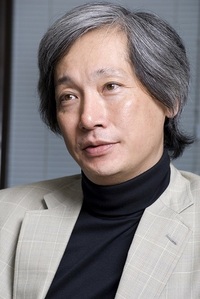
~Class Outline~
How can lasting peace be built in a world that is torn asunder by the use of military force? The object for this thematic field on Peace Building is the use of military force that is spreading in forms of international conflicts and civil war throughout the contemporary world, with emphasis on the challenges presented by civil wars and the many humanitarian disasters that such wars have brought out. The broad questions that ought to be addressed are as follows: How do conflicts and violence affect these states? What are their roots, both internal and external, that lead to civil war? What are their consequences? Finally, how can we cope with the challenges of peace building?
In this program, we aim to elucidate the reasons why such conflicts break out, and to consider the conditions for conflict resolution, the building of postconflict political and legal orders, measures to prevent a re-emergence of conflict, and aspects of preventive diplomacy in regions where conflicts have not yet broken out. Through practical research students will gain a deeper understanding of fundamental issues such as 1) the current situation of international conflicts and civil war, the relationships between 2) religion and conflict, 3) ethnicities and conflict, 4) poverty and conflict, 5) terror and terror organizations, aspects of 6) intervention and occupation, and 7) aid for refugees.
Students should select a specific case of conflict to research measures necessary 8 for peace building. The purpose of students’ research is not just to find out the facts of a specific conflict or to survey existing research on a specific region, but to combine such research and understanding of a specific conflict and evelop an original, novel perspective.
After an orientation meeting, we will have three lecture - discussion sessions,focusing on an in-depth understanding of the main causes of civil wars. Why do armed conflicts break out? Is it because of ethnic or religious diversity? To what extent does economic motives bring out use of armed forces? Then we will start thinking about the consequences of armed conflicts and civil wars. We will have a brain-storming session, based on research conducted by each participant, on the various forms of human suffering that take place in civil wars, such as massive killings, sexual violence, dislocation and refugees, destruction of economy and infrastructure. Participant must choose one aspect of such consequences, and plan to address possible remedies or solutions to such sufferings.
The brainstorming should be the basis of specific research projects on your own. Participants are encouraged to address a particular aspect of civil war, and construct proposals for peace, in the broadest meaning of the term. Please be advised that this is an independent research program. Thus, there is no full set of materials that guide you all the way, although we will have discussion meetings in class that address issues on peace building. All participants must make a group presentation at the final GEfIL meeting, organized possibly in two or three groups.
"Global Economy&Management" by Prof. Junjiro SHINTAKU and Project Prof. Junichi HANDA
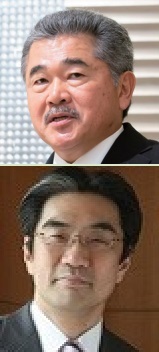
~Class Outline~
We aim to develop human resources, who can stand their ground on any big international stage and demonstrate without fail their competency. The majority of challenges big organizations face today, whether they are related to the large changes in the point of growth of the world economy or, on the other side, the increase in instability, can only be resolved by adopting a global perspective and understanding the global dynamics. Likewise, the accumulation and utilization of innovations and core competencies that support corporate management can no longer be considered without taking global dynamics into account. The challenge will be to explore the nature of the global economy in the future, by looking at how global corporations in Japan have tackled these issues and examine in detail the struggles they have met. To this end, not just corporate strategies but understanding of aspects ranging as wide as from corporate strategies, organizational structures, leadership to the life of a corporate person will surely be required. In this course, we will pursue intensive teamwork and compile our research results, while taking into account students’ intellectual interests and future career choices. This thematic group aims to provide students with the vision and attitude to grow into strong (management) leaders endowed with a global vision.
"Global Health" by Prof. Masamine JIMBA
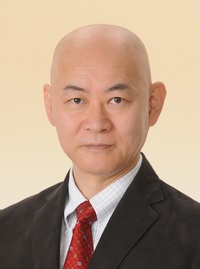
~Class Outline~
Various health issues occur in every region of the world, but for this Global Health thematic field, we shall focus on developing countries. Unlike developed countries, many developing countries are unable to take measures for the control and prevention of diseases. They cannot protect lives. Thus, while the average life expectancy in Japan in 2016 was 84 years, in Sierra Leone in Africa it was only 50 years. What are the causes for this gap in life expectancy? Poverty, insufficient education, political instability, that is, social and political factors other than healthcare are also creating such disparities. One may feel anger at these unforgivable disparities in health, yet it is the mission of Global Health to calmly work on ways of correcting them. Not only diseases are threatening people’s lives. People in developing countries, in particular, are subjected to many threats such as disasters, armed conflicts, etc. One important first step in overcoming these challenges is to save people’s lives first and then, promoting their health and wellbeing. To protect the safety of individuals and communities living under such threats, not just from disease, are also the goals of human security, which emphasizes three freedoms: freedoms from fear, from want, and to live in dignity. In the ‘Global Health’ thematic field, we shall first come to grips with the actual circumstances of the disparities in global health. Secondly, we will examine the health disparities between specific groups such as migrants and non-migrants and then figure out ways to tackle these disparities by taking multifaceted approaches. Finally, we shall consider the values pursued beyond health: What are the goals when promoting health?
"Sustainability" by Prof. Kensuke FUKUSHI and Associate Prof. Alexandros GASPARATOS
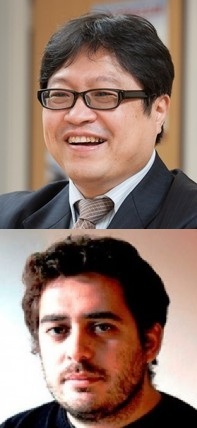
~Class Outline~
The smallest unit of society is the individual. Sustainability of the individual heavily depends on the sustainability of the family, of society, a region and indeed, the earth. Protection of an individual’s life and protection of a region’s society cannot be achieved without ensuring the sustainability of the whole earth. Sustainability should be achieved by a variety of scales and ideally, development plans, industrial activities, etc. would be executed on the basis of the concept of sustainability. In this ‘Sustainability’ theme group, we will examine from the viewpoint of sustainability various regions of the world and the difficulties they face regarding issues such as the environment, health, resources, development, human resources, industry, livelihood, culture, education, etc. and together we will consider possible solutions.
"Global City" by Prof. Shunya YOSHIMI
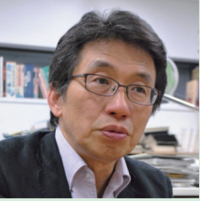
Nowadays, our planet appears covered by a mesh of cities. Through mobile devices, automobiles, fashion, music, or eating habits, the "global city" seems to overlap largely with the notion of "global society". Actually, however, it is a little different. Cities are, first of all, dense congregations of people, where encounters of diversity take place. With the city as their stage, people of different cultural backgrounds connect and confer. Secondly, cities are concrete places composed of material buildings, roads, plazas, and vehicles. Urban planning and the city’s geographical structure thus condition all happenings in the city. Third, each city has its unique history, which shapes the individual cultural character of a city. Understanding the global city means to think about the concrete locale of a specific city that has developed as a gathering of diverse people, who are connected globally. That concrete city can be anywhere. Let's focus on the downtown area of the global city you are interested in. Using the developmental direction central Tokyo should take beyond the 2020 Olympic Games as a lens, we shall examine by comparison issues such as redevelopment, gentrification, cultural trends, the new creative and information industries, crime, and entertainment areas, old shopping streets and slow mobility and so forth.


